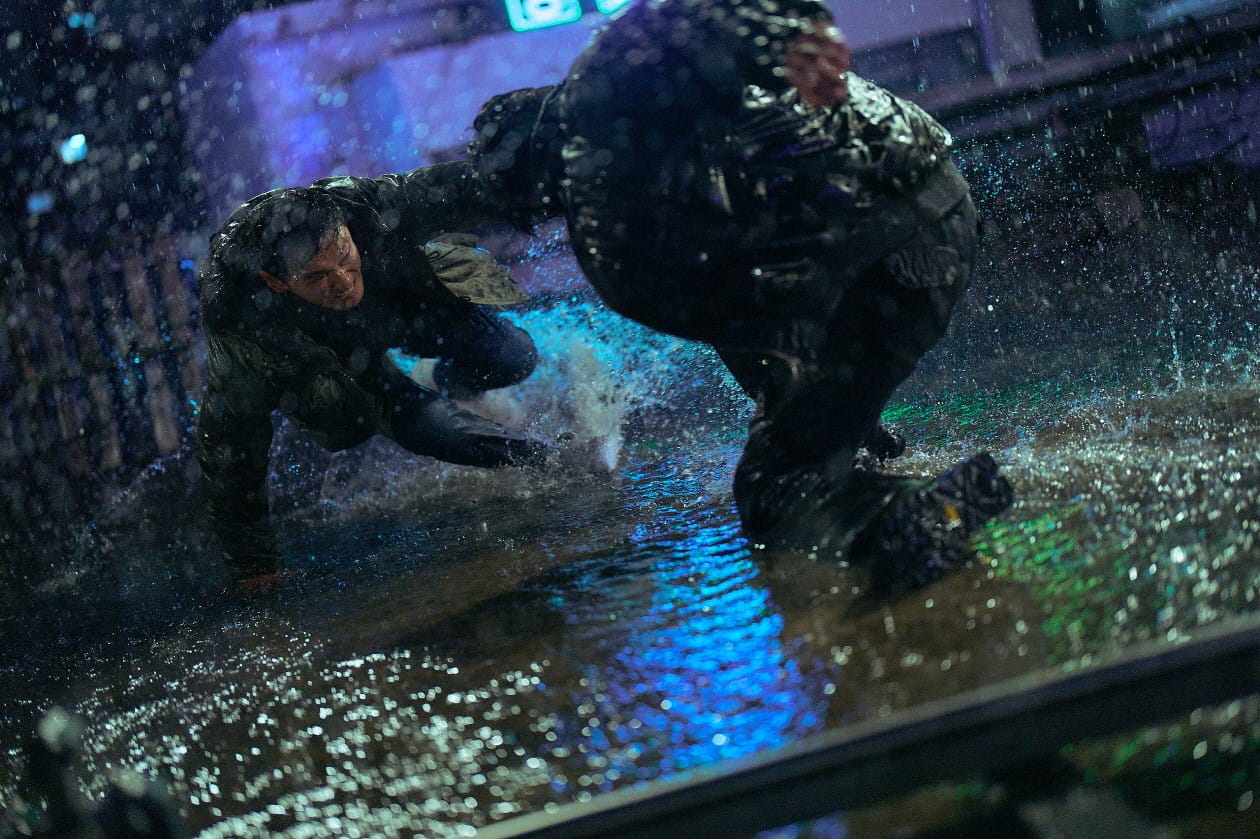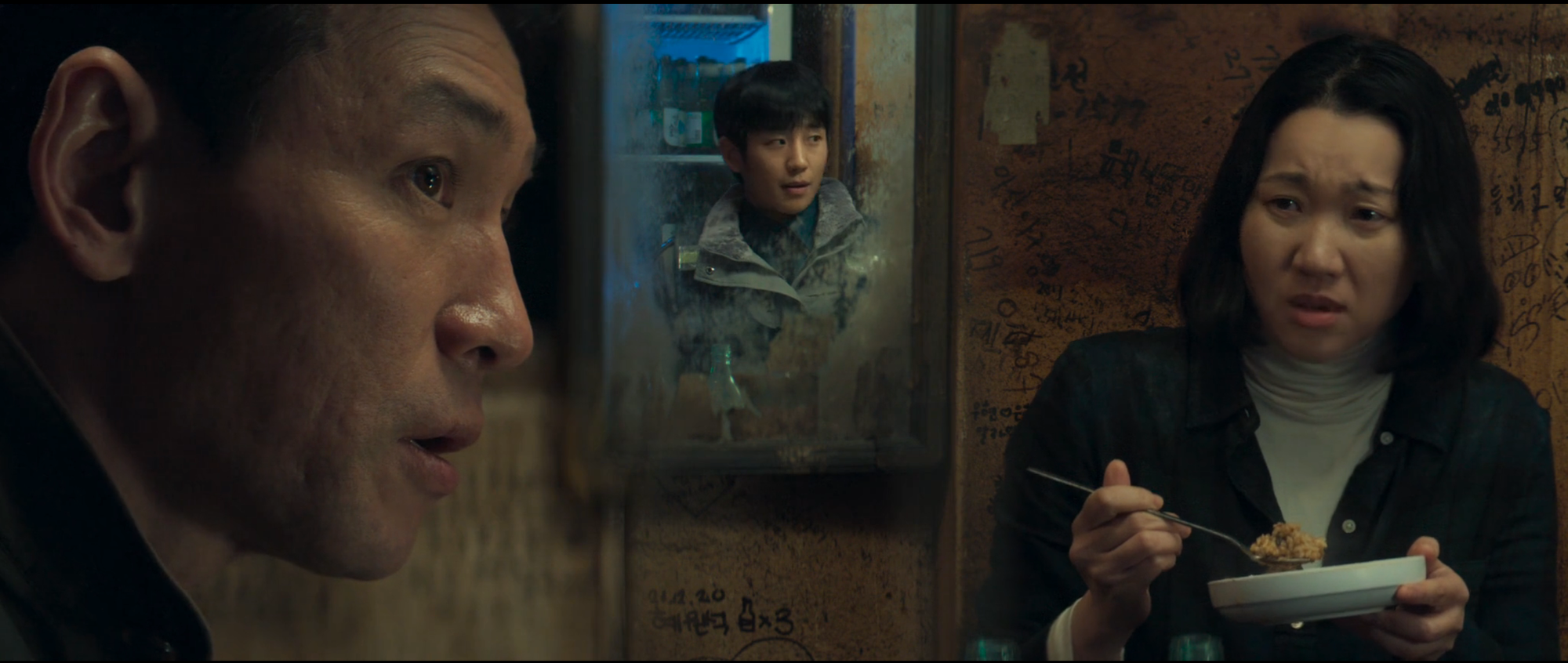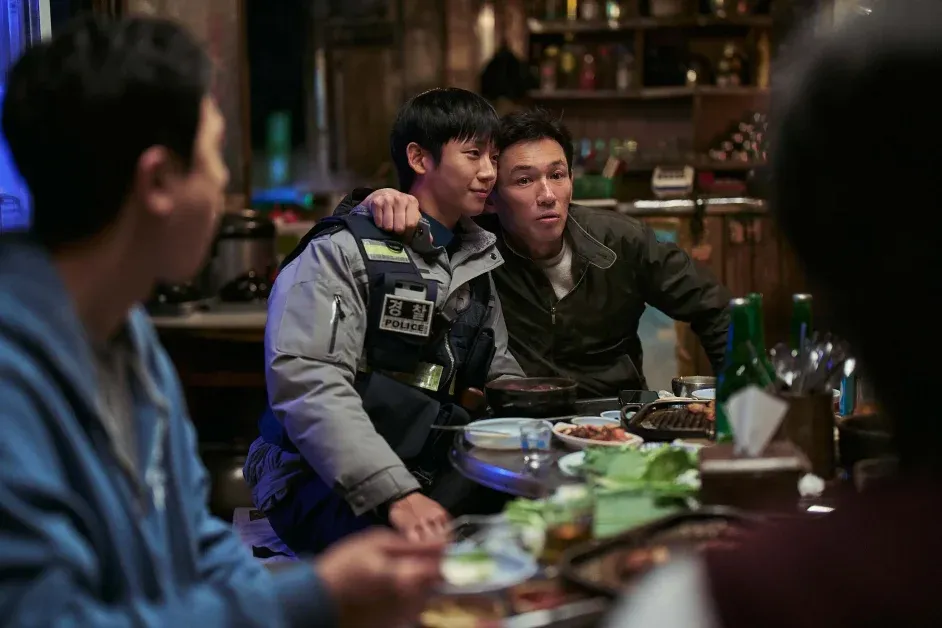Veteran 2: I, the Executioner (Ryoo Seungwan, 2024)

I couple days ago, I wrote about the upcoming film The Shadow Strays and introduced it by hyping up all the incredible action movies we’ve seen coming from around the world over the last several years. It was by no means meant to be an exhaustive list, but in my haste to move on to the rest of the review (which you should able to read over at InReview Online in a couple of weeks), I skipped over some prime centers of 2020 action cinema: India and Korea. India because I’m just as guilty as most everyone else in the West of thinking of South Asian cinema as its own separate entity, cut off from and unrelated to the rest of the world, and thus it simply doesn’t jump to mind when I’m thinking about Chinese, Hong Kong, Japanese, and Vietnamese film. I don’t know why I didn’t think of Korea though, probably just an old age related omission. Regardless, Korea has certainly turned out some of the most entertaining and interesting action movies of the past decade, everything from Ma Dong-seok brawlers (the Roundup series and Train to Busan) to innovative Girls with Guns movies (Ballerina and Special Delivery) to historical epics (Lee Hanmin’s Admiral Yi trilogy), to say nothing of older movies like Kim Jiwoon’s A Bittersweet Life and The Good, the Bad, and The Weird or Kim Seonghun’s A Hard Day. Topping almost all of them at the Korean box office though was 2015’s Veteran, a movie I didn’t watch until this week because I thought the title made it sound like some kind of dour, grimy, ultra-violent Tom Berenger picture (I haven’t seen the Sniper series either, maybe they’re good?), but which is instead one of the liveliest, most vibrant detective movies I’ve seen in years.
Hwang Junmin stars as Detective Seo Do-cheol, literally bursting onto the screen as an undercover cop with a full bladder taking down a garage of car thieves in an acrobatic display of random prop usage that rivals Jackie Chan at his most creative. The reference is intentional: director Ryoo Seungwan is a huge fan of action cinema, and Chan in particular, and the Veteran movies are rife with homages to classic films (the title of the sequel, I, the Executioner, is borrowed from a 1968 Tai Kato film with a similar cops vs. vigilante theme, and, to the collection of match cuts and wipes he used in the first film, Ryoo now adds some clever shots with mirrors and De Palma-esque split diopters). Hwang is not a trained martial artist and he doesn’t movie like one. Rather he’s an accomplished musical theatre actor and, like all those ballerinas turned action heroes before him, he moves not like a fighter but a dancer. In Veteran, he relentlessly dogs the son of a corporate overlord who has ruthlessly beaten an average joe truck driver for no reason but his own sadistic pleasure. The film comes across as stridently pro-worker, and is as much a film about Seo and his team solving the crime and exploring the pathos of rich-poor relations as it is about staging brutal fight sequences. It’s all finely balanced by Ryoo and anchored by Hwang’s electric lead performance.

One note though in Veteran strikes a discordant note. For what is otherwise a pretty solidly leftist cop movie (if that’s not an oxymoron), it takes a shocking blithe attitude towards police brutality. There’s a comic sequence where Seo and his team are interrogating a suspect who is proving uncooperative. They joke about it being time to clean the office, whereupon one of the officers pulls out a broom and, under the guise of dusting the ceiling, blocks the surveillance camera while Seo begins to rough up the suspect. It’s a joke repeated almost verbatim as a running gag in the Roundup movies, which have no qualms whatsoever about cheering the cops on as they take extra-legal measures to fight crime.
Well, it seems Ryoo may have developed some qualms after all, as the sequel, which comes nine years after the first movie, is all about the question of whether or not there should be limits to police violence. A serial killer is stalking people he believes have been under-punished by the criminal justice system: a professor who got away with sleeping with a student who committed suicide as a result, a drunken thug who knocked a woman down in a parking lot and crushed her skull (apparently being drunk at the time you commit a crime is a mitigating, not an aggravating factor), etc. Seo and the team are on the case (now under the supervision of Hong Sangsoo stalwart Kwon Haehyo—as always it is delightful and unnerving to see Hong actors in real movies), and this time they’re joined by a relative rookie, a patrolman who has become internet famous for using MMA moves to subdue a suspect. What they don’t know, though we do if we’re at all paying attention, is that this new kid is in fact the killer.

Hwang’s performance is a bit more subdued this time around (but then again aren’t we all after the last decade?), while the action is less fun and more brutal. The opening sequence carries much of the same energy as the opening to Veteran, and combines it with a rehash of some of the same jokes from that film’s outstanding chase sequence through a port. Most of the action sequences are of the chase variety, though there is a very cool group fight on a rooftop rainstorm that features a lot of slick sliding and grappling. The signature sequence though is a long chase through a crowded festival integrating elements of parkour with an especially nasty tumble down a long flight of stairs at the end. The violence was sickening only at times in Veteran, namely when it was being perpetrated by the wealthy villain against the poor worker. When it was the cops dishing it out, the choreography was light and fun.
This shift in tone is entirely appropriate of course. I, the Executioner feels very much like a work or self-examination, if not self-accusation. In the climactic scene, Ryoo, through the villain, deftly stitches together a montage of throwaway lines and comments our hero Seo has made throughout the film, blithely joking about beating suspects, or truly-believed expressions that certain suspects do indeed deserve death for their crimes. The vigilante, both as a character and a concept, throws the cops’ own ideology of justice in their face, and proves himself to be the logical and inevitable extension of the very nature of (a) police force. Ryoo too implicates the media in this debasement of culture, in the form of an internet huckster (who had been an reasonably honorable newspaper reporter in the first film) who drums up stories about the serial killer to the point of even providing suggestions for potential targets (which turn out to be based on rumors and lies in contravention to facts, factors which are irrelevant to clicks). The journalist’s audience eats up his revenge fantasies, just as much as the killer internalizes the ideology of policing. We lap it up too, as long as the violence comes in just such a lively and vibrant package.
